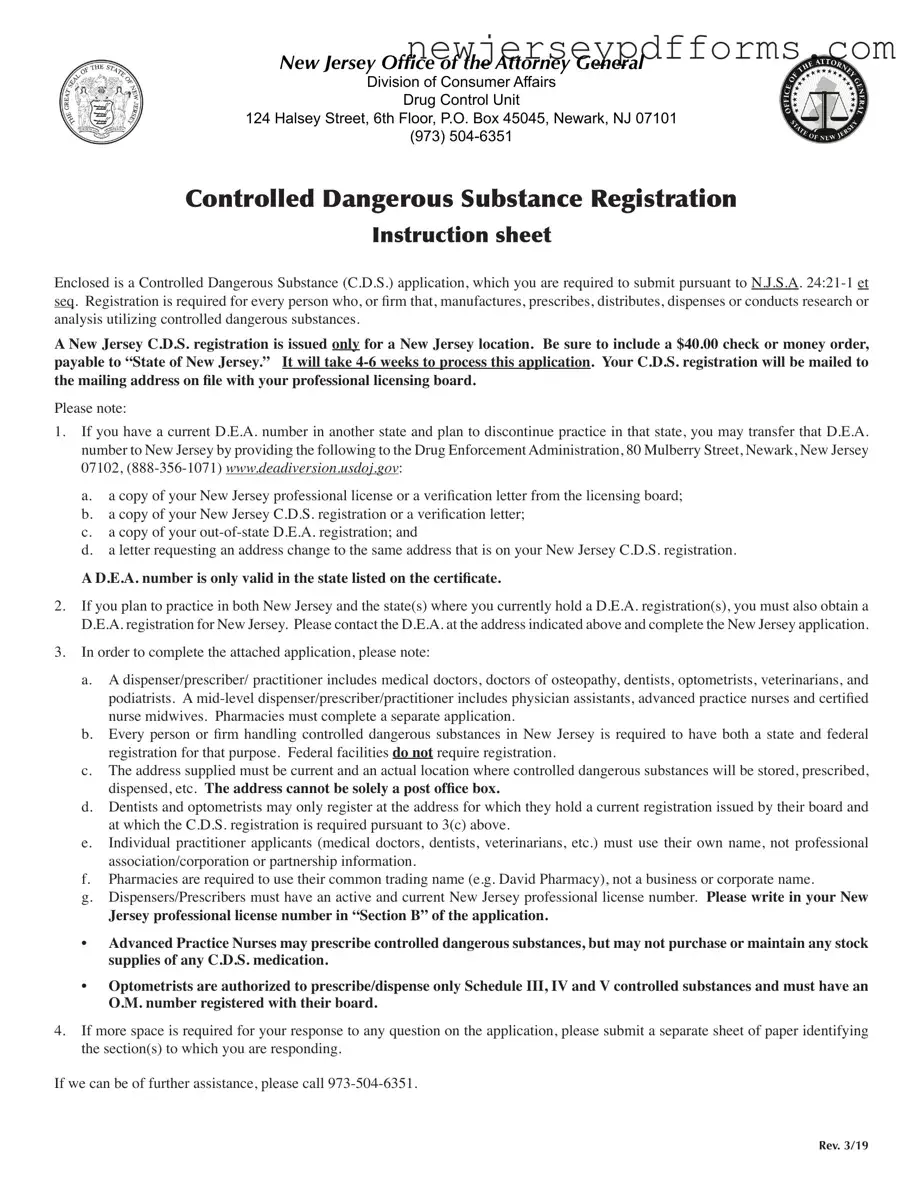Printable Nj Application Registration Form
The New Jersey Application Registration form is a crucial document for individuals and firms involved in the manufacturing, prescribing, distributing, or analyzing controlled dangerous substances (C.D.S.) in New Jersey. This registration is mandated by state law and ensures compliance with regulations governing the handling of these substances. To begin the registration process, complete the application and submit it along with a $40.00 fee.
Ready to get started? Fill out the form by clicking the button below.
Open Editor Here

Printable Nj Application Registration Form
Open Editor Here

Open Editor Here
or
Download Nj Application Registration PDF Form
Complete the form before time runs out
Edit your Nj Application Registration online and complete it quickly.